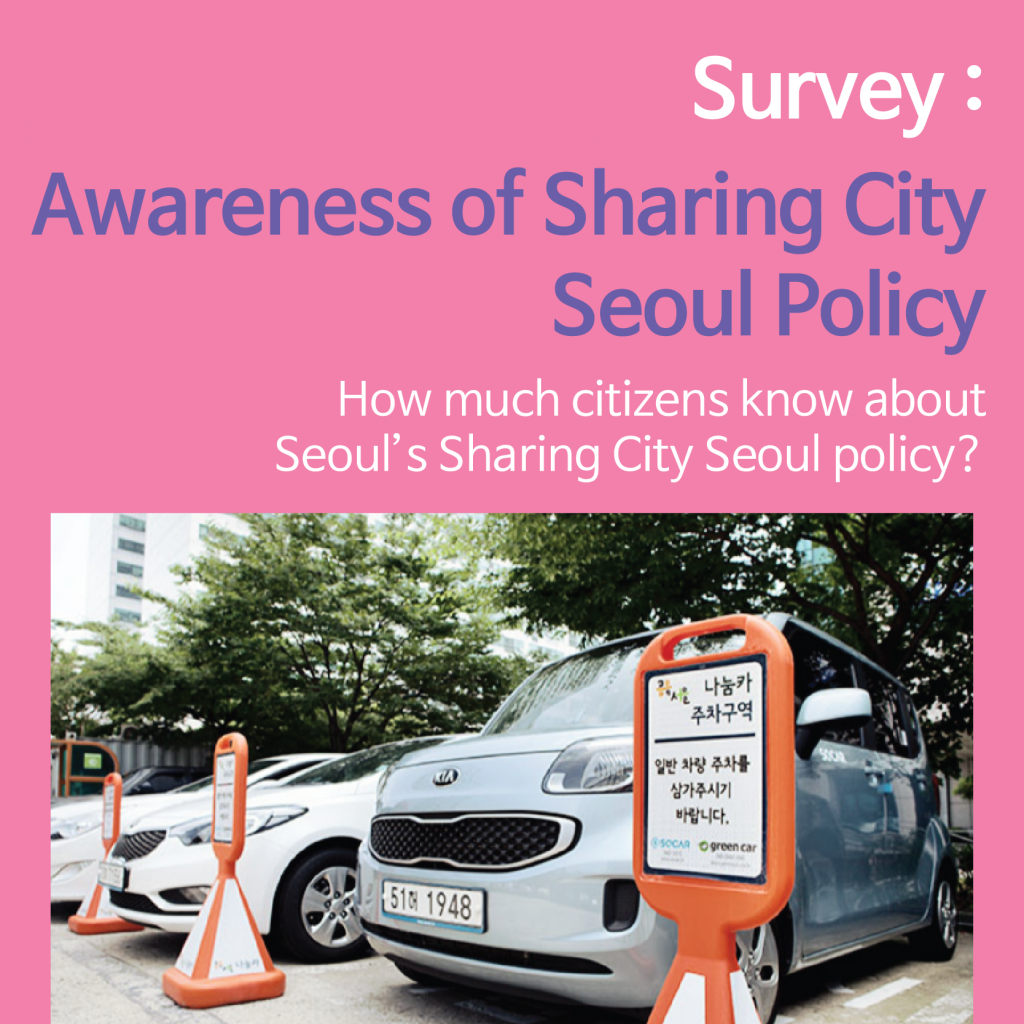How much citizens know about Seoul’s Sharing City Seoul policy?
Seoul Metropolitan Government conducted a related survey last May with a sample of 2,500 adults aged 19+ who reside in Seoul.
The awareness rate was 49.3% – in other words, one out of every two Seoul citizens have heard of “Sharing City Seoul” policy.
Awareness was higher among men, in their 20s or 30s, well-educated, high-income, and white collar, and residing in the center or southeast area of the city compared to others.
In terms of policy satisfaction, respondents were largely satisfied with the policy, with satisfaction rates of 90% or higher for major projects such as Nanum Car and 77% or higher for other projects on average. They also generally agreed on the effects of the policy such as benefits for household economy and environmental protection.
For more details of the survey results, follow the link below!
[Survey overview]
○ Survey period: 16 days from Mon, May 2nd to Tue, May 17th
○ Sample size: 2,500 adults aged 19+ who reside in Seoul
※ 100 adults from each autonomous gu district, considering sex and age distributions
○ Survey contents: Recognition and satisfaction of Seoul’s Sharing City policy (16 projects)
○ Survey method: Online survey conducted by a research agency
○ Margin of error: 95% confidence level, ±1.96%p
○ Research agency: Opinion Live
[Key points]
The awareness rate was 49.3% – in other words, one out of every two Seoul citizens have heard of “Sharing City Seoul” policy.
Awareness was higher among men, in their 20s or 30s, well-educated, high-income, and white collar, and residing in the center or southeast area of the city compared to others.
In terms of policy satisfaction, respondents were largely satisfied with the policy, with satisfaction rates of 90% or higher for major projects such as Nanum Car and 77% or higher for other projects on average. They also generally agreed on the effects of the policy such as benefits for household economy and environmental protection.
While respondents learned about the policy mainly through online, i.e. the internet and online broadcasting programs, the main reason they use sharing services was its cost benefits.
Overall, public awareness and satisfaction of the sharing policy was higher; however, the ratio of people with a higher level of awareness is still low – 9.7% responded they know about the policy “very well” and 12% said they used major projects. Continued and active efforts are needed to encourage more participation in and use of the sharing policy and projects.
[ -> Check out more details of the survey results] (Korean)




